Yesterday's flight to London took only 6 hours, 37 minutes from wheels-up to landing. That is, in fact, the fastest I've ever gotten from O'Hare to Heathrow, by 8 minutes. I am impressed.
High above the North Atlantic, our hero reads the articles he downloaded before take-off:
- Releasing to Production the day before a holdiay weekend? No. Just, no. OMFG no.
- American Airlines just won a lawsuit started by US Airways that opens up competition in airfare consolidation—maybe. Bear with it, because this one article explains a lot of what's wrong with competition in any endeavor today. (I'll find a link to the Economist print article I just read on this topic when I land.)
- The Washington Post helpfully provides 94 questions we Democrats are asking as we slouch towards a Trump presidency. Thanks, guys.
- In the spirit of Christmas, Citylab remembers when Manhattan had the El. (How is this about Christmas, you ask? No El.) It's interesting to me that only now, more than 60 years later, is New York replacing the east-side transit options with the Second Avenue Subway.
- Also from Citylab, an interview with Costas Spirou and Dennis R. Judd about their new book Building the City of Spectacle, how Mayor Richord M. Daley remade the city. (Note to self: buy their book.)
- Finally, the Deeply Trivial blog compiles a couple of videos every Star Wars fan should watch. I know for a fact that the author was born well past the Ewok Divide, and yet seems to have a good bead on the Star Wars universe. Perhaps there is hope for the galaxy.
Today's flight is remarkably fast. We caught the jet stream off the Labrador coast, and with about an hour to go, we're hurtling 1,074 km/h off the west coast of Ireland. This could end up the fastest trans-Atlantic flight I've ever been on, in fact. Details later.
N.B.: Most of the entries on this blog since 2011, and a good number of them going back to 1998, have location bugs that show approximately where I was when I wrote the entry. Click the globe icon directly below and it will call up Google Maps.
If I write an entry at my house, I use a street intersection a few hundred meters away for an approximate location. In a city of three (or, in 1998, seven) million, I feel that's enough privacy. Otherwise, I try to be accurate, even going so far as to whip out my mobile phone to get a GPS fix in flight, as I've just done. Why, you ask? Because it's cool, I reply.
It turns out, Spain may be changing time zones soon, away from the one established by Franco:
After months of speculation, Employment Minister Fátima Báñez announced this week that the government is working on a plan to get more workers out of the office at 6 p.m., rather than being stuck at work until 8 or so, as many currently are. Báñez said that one important part of that policy under consideration is a switch from Central European Time (CET) to Greenwich Mean Time (GMT), under which the clocks would be put back permanently by one hour.
[W]hen the country first standardized its time in 1900 after using solar time for centuries, it used GMT. It was only during World War II, in 1940, that Spain’s fascist leader, Francisco Franco, changed the time zone to CET so that the country could be line with Nazi Germany and its occupied lands. After the war, Franco stayed in power until the 1970s. The clocks were never changed back.
See? And you thought this was going to be about Trump.
Via Deeply Trivial, the Stack Overflow blog comes up with some answers:
Here on the Stack Overflow data team we don't have to hypothesize about where developers are and what they use: we can measure it! By analyzing our traffic, we have a bird's eye view of who visits Stack Overflow, and what technologies they're working on. Here we'll show some examples of what we can detect about each city based on one year of Stack Overflow traffic.

When developers are using a programming language or technology, they typically visit questions related to it. So based on how much traffic goes to questions tagged with Python, or Javascript, we can estimate what fraction of a city's software development takes place in that language.
London has the highest percentage of developers using the Microsoft stack: while New York had more Microsoft-related traffic than San Francisco, here we see London with a still greater proportion. Since both London and New York are financial hubs, this suggests we were right that Microsoft technologies tend to be associated with financial professionals.
Just another reason why I think London and I should get more deeply acquainted.
Here's a fun comparison. This is the building adjacent to the north side of the northbound platform at the Northbrook Metra station. First, October 1985:

Here's the same wall almost exactly 31 years later:
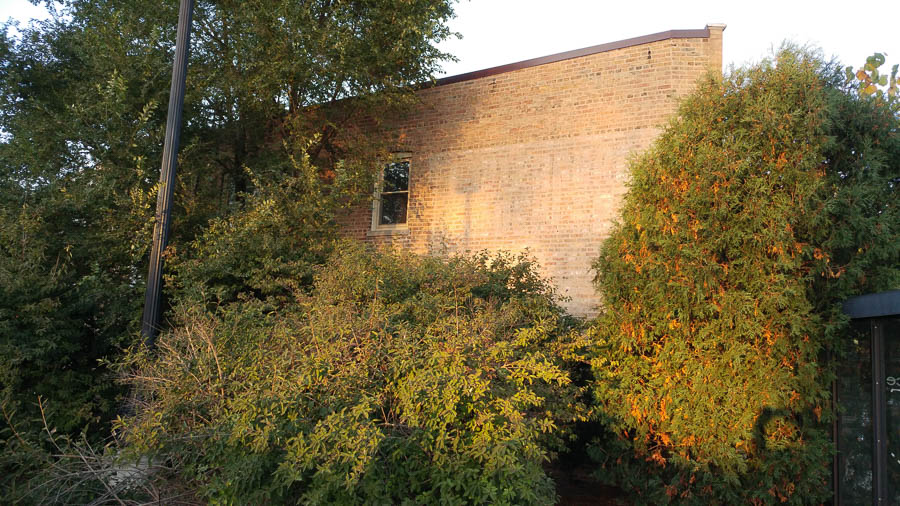
The pharmacy long ago disappeared. The building now contains an Italian restaurant and a hair salon.
Google now has a tool that will show you a time-lapse of any part of the world from 1984 to present:
In 2013, we released Google Earth Timelapse, our most comprehensive picture of the Earth's changing surface. This interactive experience enabled people to explore these changes like never before—to watch the sprouting of Dubai’s artificial Palm Islands, the retreat of Alaska’s Columbia Glacier, and the impressive urban expansion of Las Vegas, Nevada. Today, we're making our largest update to Timelapse yet, with four additional years of imagery, petabytes of new data, and a sharper view of the Earth from 1984 to 2016. We’ve even teamed up again with our friends at TIME to give you an updated take on compelling locations.
The examples on the demo page are striking. I would also suggest a few more to check out: Las Vegas (the city quadrupled in size in 22 years); North Suburban Illinois (watch the Glenview Naval Air Station disappear like a leaf in winter); Dubai; Mount St. Helens (watch the forest grow back and logging operations resume). Very cool stuff.
Even though it rained every day during my trip to Puerto Rico last week, it did stop raining every so often. Wednesday I was able to go to the Playa Negra (black sand beach) on Vieques, with tons of sunscreen and very uncomfortable flip-flops:
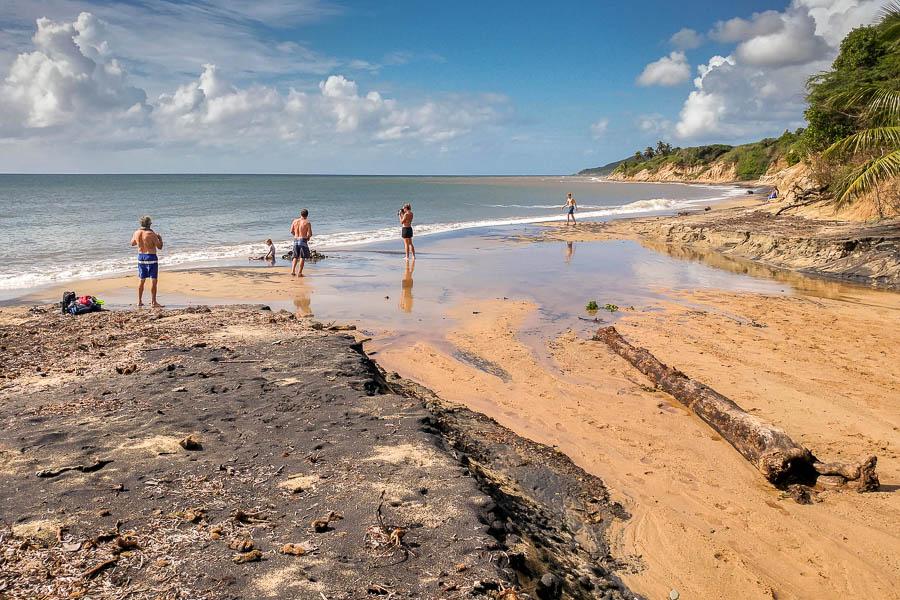
The rain made the "road" to Playa Negra more challenging to walk down, however, as it doubles as a stream:
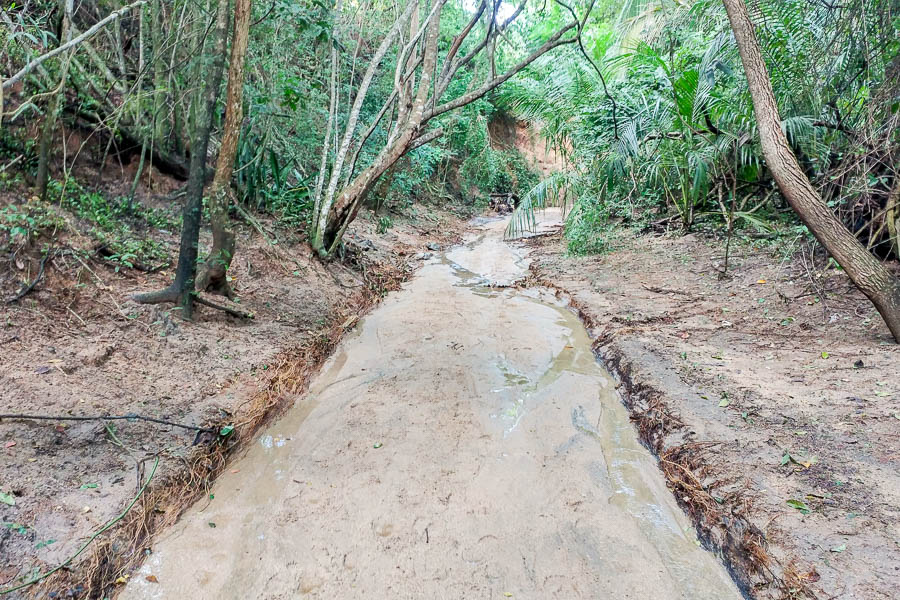
Finally, on Thanksgiving—my last day on the island—the sun did what it should have done all week:
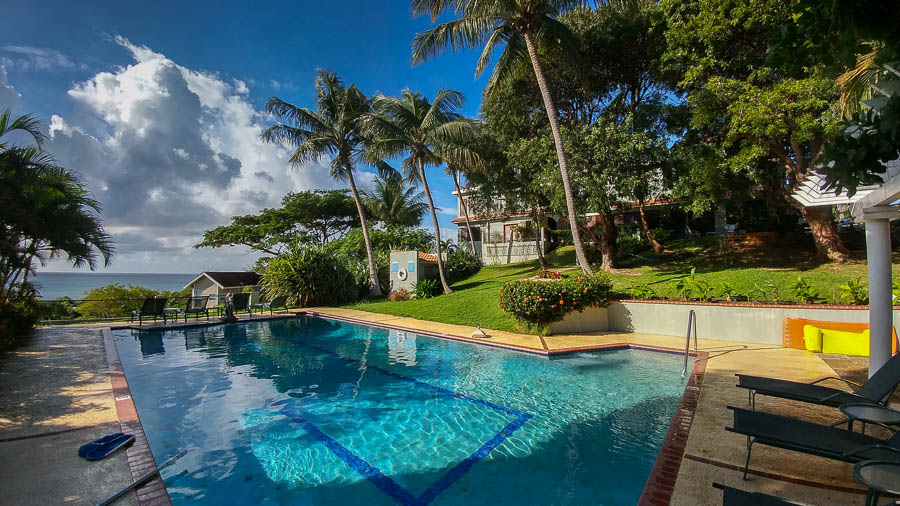
It finally stopped raining in Puerto Rico late this morning. That was a few hours after half the main island and all of Vieques lost power. Ordinarily I'd link to the news report but, it turns out, an island-wide power failure isn't actually newsworthy here.
And yet I'm really loving this place. Vieques has a rare combination of undiscovered and verdant that I find compelling. My only other experience in the tropics is Saint-Martin, which I love (because airplanes!) but which hordes of people visit by cruise ship. (Let that sink in a bit, especially as it explains why in several trips to Sint Maarten I've never visited Phillipsburg.)
I'll have a lot of photos when I get back to the mainland, but for now all I've got are shots that have filtered through Facebook. Here's this afternoon:
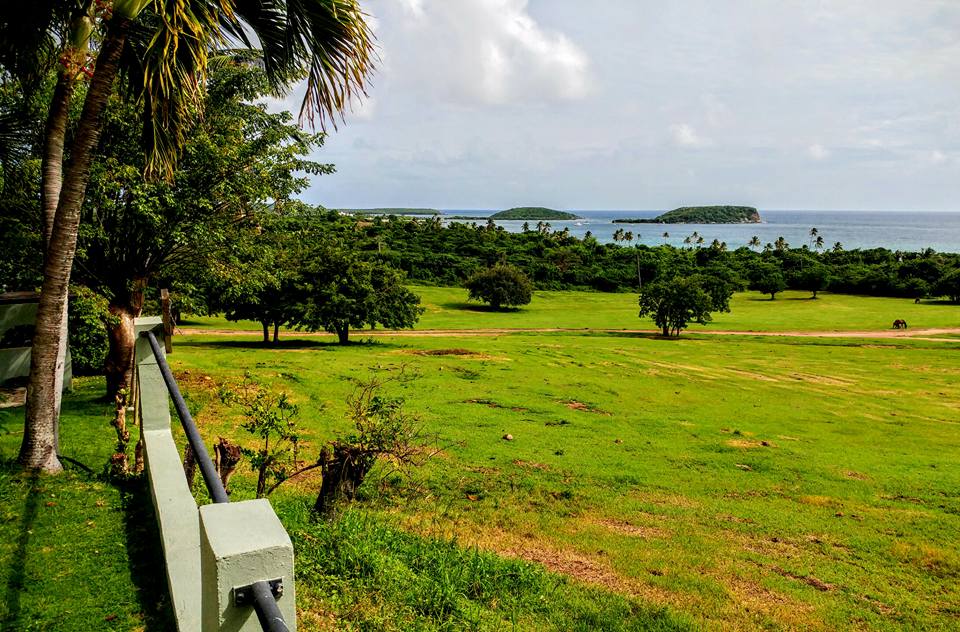
And yet, here is my real purpose for visiting Puerto Rico and drinking rum from St. Croix:
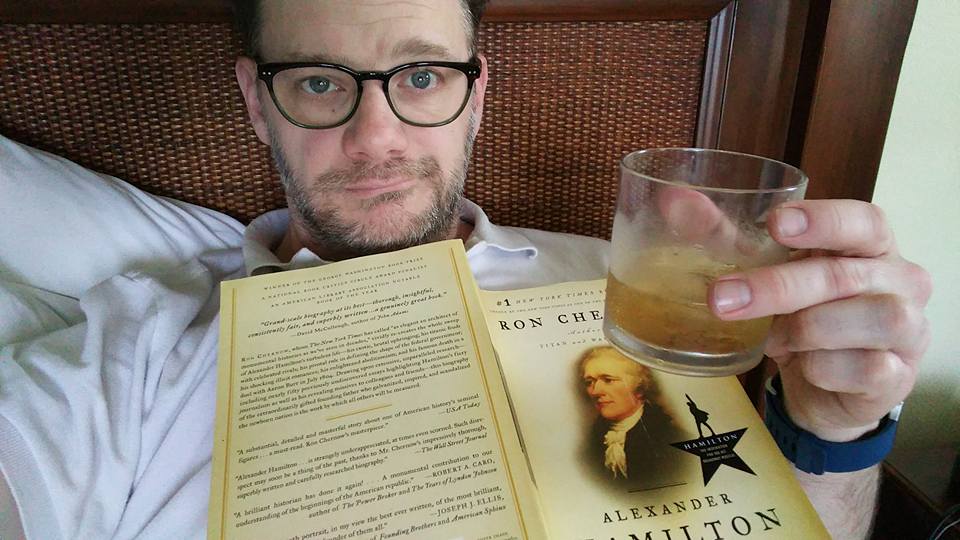
Sometimes you just have to retire to a tropical island with a big book and a beverage.
I should report that today's lack of pouring rain has slowed my reading somewhat, as I felt it necessary to hike down to a volcanic black-sand beach and swim in the hacienda's pool instead of digging in to important reading. Which, I think, is the point of vacationing on a small island.
I'm spending a couple of days on two U.S. islands in the Caribbean, Puerto Rico and Vieques. So posting is a little iffy. Right now I'm waiting for the island hopper to take me between the two islands, a flight that will spend less time in the air than it will taxiing on the ground.
There has been a minor problem, though. It has rained every day, and the forecast calls for more rain every day. Here's Condado Lagoon from the roof of my hotel:
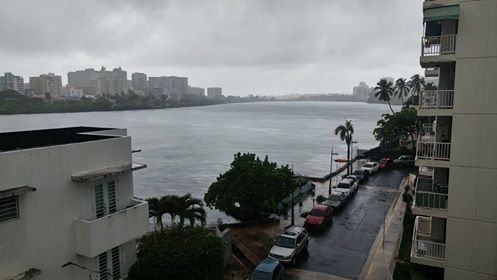
Right now it's a little sunny but still not what I would call dry. The rain also dumped a good layer of fresh water on the bioluminescent bay that I visited last night, sending all the glowing critters deep into the warmer, saltier water on the bay's floor. Disappointing, but hey, it's nature.
I'll have more photos and posts from Vieques, assuming there's WiFi.
I could post about Krugman's "Thoughts for the Horrified," Deeply Trivial's explanation of how the polling failure wasn't what you think it was, or how much rats like being tickled. Instead, I give you twins born on either side of the return to Standard Time:
Emily and Seth Peterson of West Barnstable welcomed their sons in the early morning hours of Nov. 6 at Cape Cod Hospital.
Samuel was born 5 pounds, 13 ounces at 1:39 a.m., shortly before the 2 a.m. hour when clocks were turned back an hour.
Brother Ronan arrived at 5 pounds, 14 ounces 31 minutes later. Because he was born after the clocks fell back one hour, his official time of birth was declared 1:10 a.m. instead of 2:10 a.m.
Of course, the hospital, the Petersons, and ABC News all completely failed to understand that wall-clock time is not absolute time, but it's still a cute story.